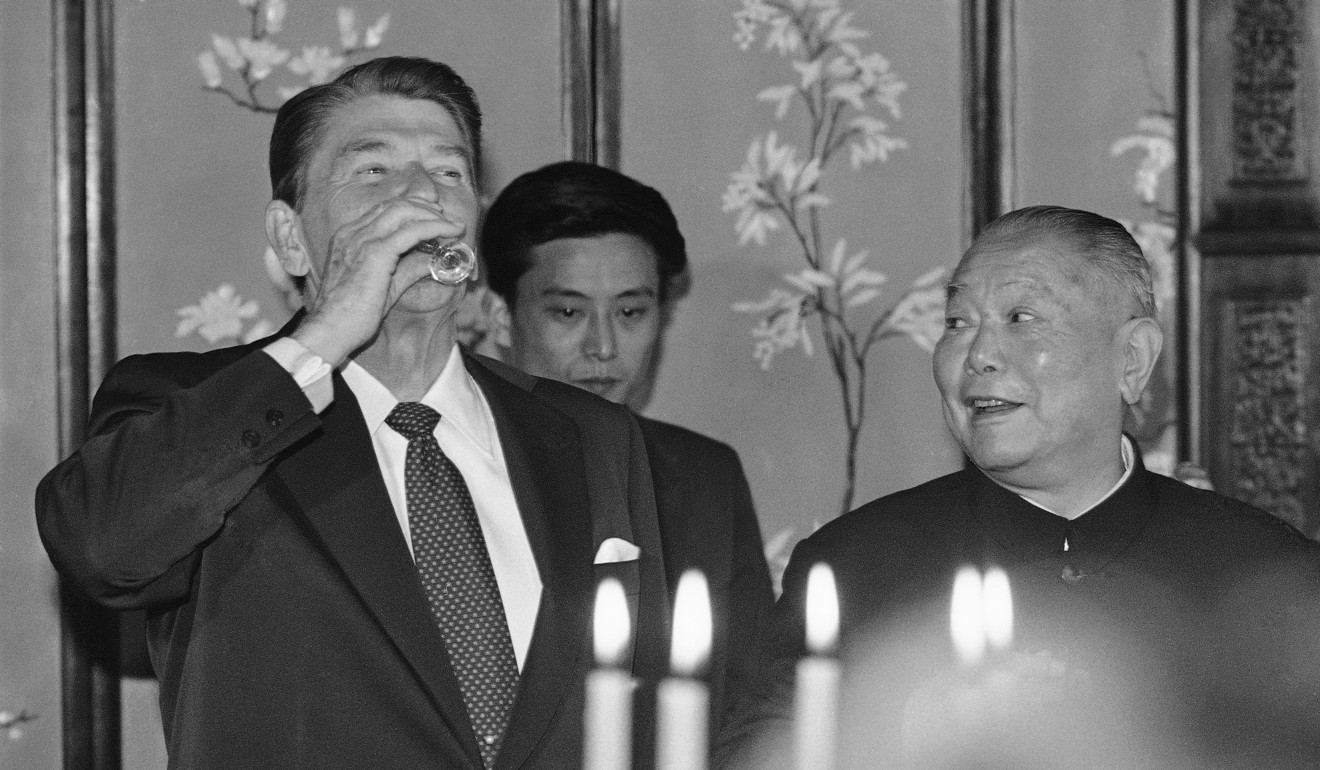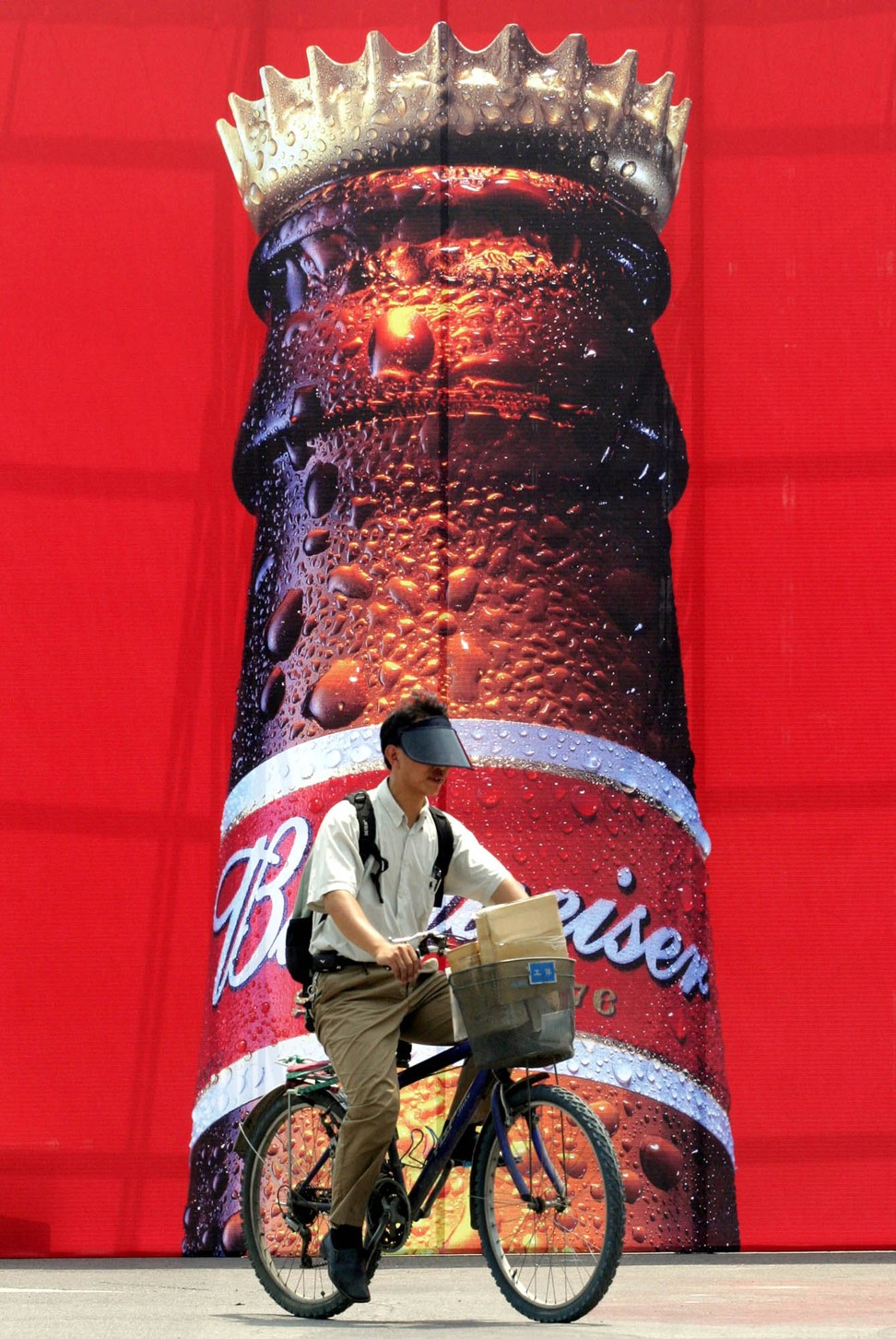
China’s massive market means big business for baijiu and Kweichow Moutai. The belt and road may take them even further
- With China sending its money, workers and influence abroad, the baijiu brands that have benefited from its massive market alone may get yet another big boost
I can safely bet that there is not a single authentic “China hand”, or credible China business expert, who has not at some point come face to face with “trial by Mao-tai” – that gruelling 15-course banquet with your hosts calling for at least one “gan bei” toast to mark each course.
My own personal record was among two rambunctious tables of coal mining bosses from northern Anhui, who would have put to shame the fieriest of Yorkshire miners. I counted a total of 52 toasts, at heaven knows what cost to my liver. Thank goodness the glasses were small.
Nor is it surprising that it ranks up alongside China’s biggest and most successful companies, with a market capitalisation of over 1.2 trillion yuan. That is not quite up there with Alphabet, Amazon, Tencent or Alibaba, but puts it close alongside PetroChina or UK-listed HSBC. And it leaves Diageo, one of the West’s leading liquor groups, in the dust.
It is a measure of our general level of ignorance of China that most readers will never have heard of Kweichow Moutai, and at the same time a measure of China’s “law of large numbers” that, in spite of our ignorance, the country is populated by literally thousands of companies that rank among the world’s largest and most profitable.
I remember vividly in the mid-1990s Anheuser-Busch launching itself onto the China beer market naively assuming that, as the US’ leading beer company, it could take China’s market by storm. It was a version of “If you can sell a single light bulb to every Chinese person, then you can make a fortune”. What they failed to anticipate was a huge and already fiercely competitive beer market heavily populated by literally hundreds of local brewers who attracted strong local loyalty, however dubious the quality.
Anheuser-Busch’s instincts were right – Chinese people today drink in the region of 45 billion litres of beer a year (almost twice the size of the US beer market) – but its battle to build even a modest presence in the China market has been a long and hard one against massive local incumbents. Today, with local partners, it claims about 16 per cent of the national market – not far short of Tsingtao (with 17 per cent), but far short of China Resources’ “Snow” brand, which claims over a quarter of the beer market.
And if the massive Chinese beer market has been a tough one to crack, then the market for baijiu, of which Mao-tai is the brand leader, has been still tougher. After all, after fading out of fashion a millennium ago, beer only re-emerged as a social tipple in China when Russian and German colonists established breweries in the 1890s.
By contrast, Chinese have been distilling baijiu for thousands of years, and today boast at least 1,000 distillers producing over 10,000 varieties of white spirit. It is said that the last Xia emperor, King Jie, constructed an entire lake of baijiu to please Mo Xi, his favourite concubine. So Mao Zedong’s famous passion for Mao-tai was modest by comparison.
Baijiu clusters into four distinct groups: rice-based baijiu, popularly from around Guilin; light baijiu, normally made from sorghum and commonly coming from around Beijing; strong baijiu, made from grains mixed together; and sauce baijiu – of which Mao-tai is the champion – which carries the pungency that can make so many Western drinkers gag.
Some say it smells of soy sauce. Others politely say it is “complex”. While the global palate for whisky, gin and vodka is strong, the idiosyncratic scent of baijiu means that barely 1 per cent of it is ever consumed outside China.
But while the anti-corruption campaign continues, Mao-tai sales have surged back, with Kweichow Moutai’s shares up more than three-fold. While sales volumes have slipped gently, the price per bottle has soared. The best Mao-tai, like the Feitian or Flying Fairy brand, today costs at least 2,300 yuan a bottle. If China’s officials have shown more restraint, clearly the country’s newly rich have more than compensated for it.
China’s law of big numbers means that even though Chinese people drink much less per head than most Western countries (an average of 7.2 litres of alcohol per year, says the World Health Organisation, compared with 9.8 litres in the US, 13.4 litres in Germany and a giddying 14.4 litres in the Czech Republic), the sheer size of the economy makes it by far the world’s leading alcohol market.

Of world spirits sales in 2019, expected to be US$440 billion, China accounts for US$134 billion, says the research group Statista. Sales of the wide range of “Chinese liquors”, at US$130 billion, are virtually 50 per cent higher than world whisky sales.
But the reality is that the company, and the many other huge distillers of baijiu, have grown to join the world’s largest companies without any reliance on international markets, and invisible to most Western drinkers or investors. I wonder how long it will be before we see baijiu wine tastings in Hong Kong?
David Dodwell researches and writes about global, regional and Hong Kong challenges from a Hong Kong point of view


